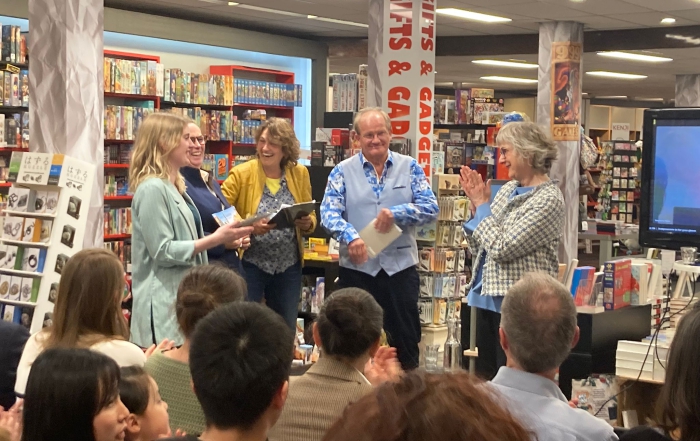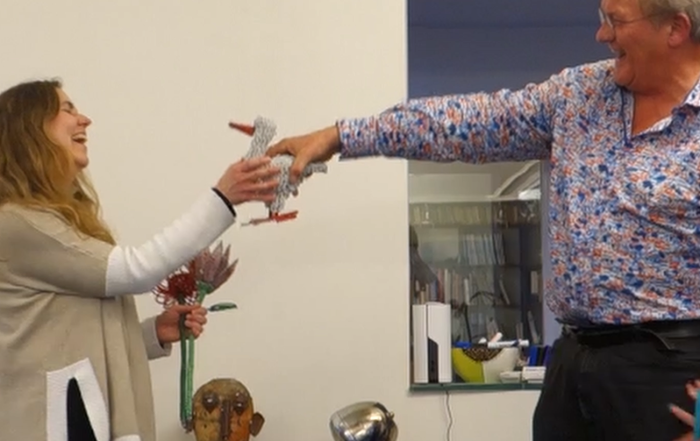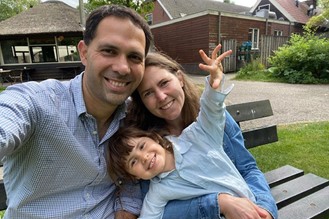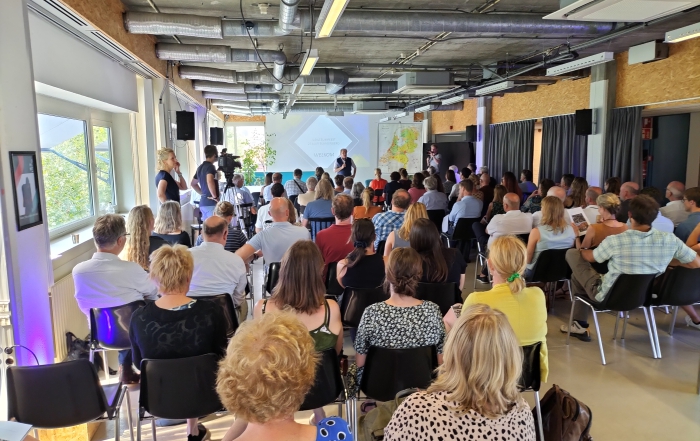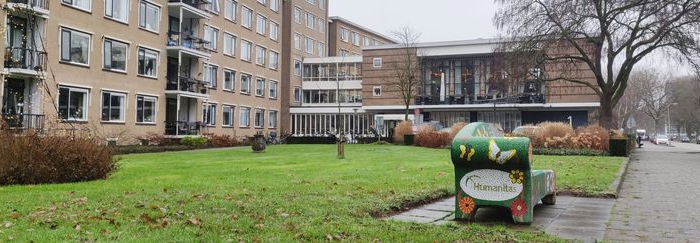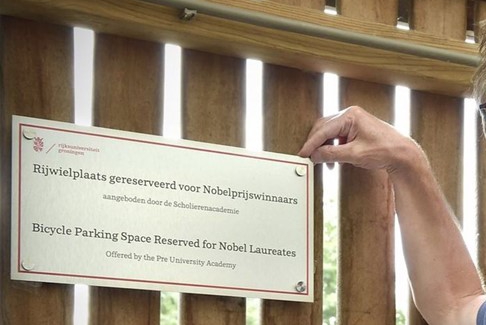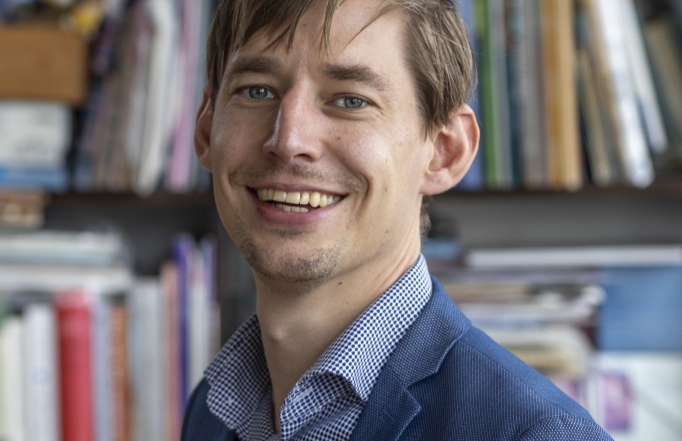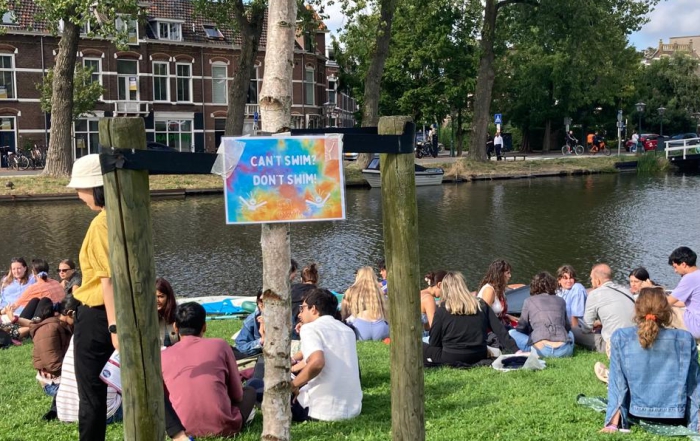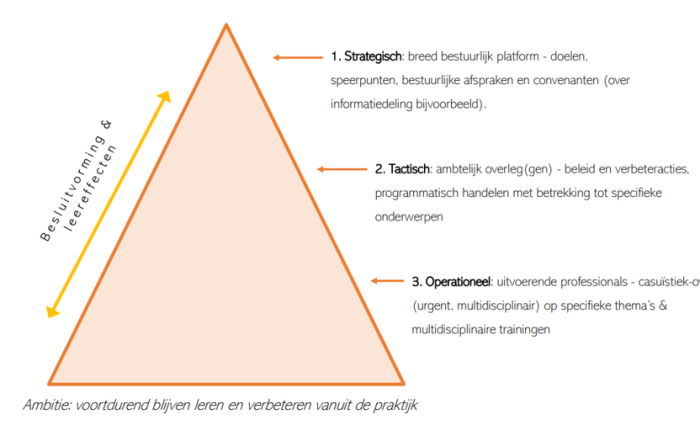English information
We are outspoken advocates for the internationalisation of our region. Our work is almost exclusively done in Dutch, but in the spirit of “practice what you preach”, we want to provide some information in English too.
About us
We are Blaauwberg, the only sociological advisory firm in the Netherlands. We conduct research and provide visions with a soul. For clients in the public domain and beyond. We work with the metaphor of the young dog and the old wolf: we like to fight for our clients, with the necessary experience and overview.
Clients come to us when they are looking for new insights, the necessary energy and the power to realise. We always put their questions in context. Understanding the motives of players, bringing in sufficient history and economics. Facts and figures are important, but never without a story, interpretation and/or vision.
A report is often the end product. But it always goes hand in hand with action: knowledge transfer, choices, setting up an organisation, leaving a working design. Paper has to ‘live’. We are good at ‘community building’: seeing and strengthening the coherence in separate parts. At the level of a company, a neighbourhood, a city and a region.
We know a lot about the local economy, are well versed in the social domain and are passionate builders of civil society. And of government cooperation with that civil society. An established symbol of that drive is the entrepreneurial fund. A concept that was devised at our office and has since become a movement for emancipation of the local business community.
An overview of our team can be found on our “over ons” (about us) page.
Our work
Local Economy
The local economy is Blaauwberg’s “home court”. The Entrepreneurial Fund is a good example of this. But we do much more. From strategic analyses and sectoral research to economic monitoring.
Labour Market
Want to know how the labour market is performing in your region? We provide analyses with a healthy interplay between metrics and interpretation. Readable, accessible, context-rich and with practical starting points for policy.
Social Sector
We contribute new perspectives in a sector that bursts with formats. We bring in history and economics to challenge ‘urban myths’, arrive at new insights and bring knowledge back to the workplace.
Education
Looking for a fresh perspective on an old or new problem? We offer you oversight in a turbulent, politically sensitive environment. Engage us as external experts to add more substance and context to your working environment.
Knowledge Transfer
We have extensive experience with knowledge transfer in course format. From one-off labour market master classes to a multi-day seminar focused on the region. You can ask us to provide a customised offer.
Other sectors
There are more areas and social questions that the clients involve us in. Sport, culture, regional marketing, public administration and more. We support with analysis, numerical insight and comprehensible text.
Our inspiration
In its policy research, policy advice and policy support, Blaauwberg strives for the greatest possible user value for the client: if possible, the client gets a substantive story, informative and argumentative, provided with a lot of context, with an understanding of the political-administrative environment, nuanced but clear enough to be able to derive a course of action. Generating user value and creating a prospect of possible action for the client is the aim of the work.
Policy advice has no scientific pretensions in the academic sense of the word. That does not mean that policy advice is only practical in nature. Working style, handling of information, methodical choices and professional integrity are partly determined by a scientific inspiration.
Blaauwberg draws that scientific inspiration from the tradition that began in classical sociology with Max Weber (1864-1920). A second source of inspiration also comes from (late-classical) sociology: the Wiener Kreis.
Practical starting points in Blaauwberg’s work in which these principles become visible are:
- Preferably not a “snapshot” of a policy process. Preference for a historical approach: how did the city, the region, the social issue, the policy problem become what they are? What were the choices faced by the predecessors of today’s policymakers? How did they solve it then?
- Cautious use of numbers and measurement techniques. Putting aside numbers for which there is no plausible interpretation. Present numbers only in context, show connections.
- Rather twenty interviews with “movers and shakers” than a written survey of 500 respondents.
- Beware of firm statements about policy outcomes. Every estate agent knows: the value of a house is not determined by the builder’s effort. It is surroundings – surroundings – surroundings. What is true for a house is even more true for a social fact: the policy maker influences and adds, but decisive is context – context – context. All credit to policy makers who formulate the desired outcome in terms of dynamics and getting people moving, and not in terms of ‘look at my policy being effective’.
- There is no reality that can be portrayed completed with a dashboard. Therefore, do not suggest more governability of the market and society than is historically plausible. Relieve policymakers of the myth of the dashboard and address their interpretive capacity as acting subjects. The political reality is not an anonymous machine that you need to know how to control. It’s a dynamic story to be looked at with historical knowledge, integrity and modesty.
- Do not depict, but construct. To this end, try to link fact-finding, inspiration and activation. Use interregional, international and historical comparisons and metaphors. Try to enrich the context of policymakers, place their actions in a long-term perspective.
- Preference for academic economists with multiple perspectives: history, political context, numerical analysis, process understanding, and so on. Michael Porter (1947), the economist of the competitive relationship between regions, countries and sectors, is a good example.
Articles in English
Festive presentation of new urban book
Festive presentation of new urban book What happens if you meet a Chilean journalist? A particularly active type, who is only here temporarily but would like to add some value to the place [...]
Goodbye party Magdalena
Recap of Magdalena's goodbye party On March 13th we held a small goodbye party for our colleague Magdalena Palma, who returned to Chile - her home country - after spending four years in [...]
Portrait: Between Chile and The Netherlands
Portrait: Between Chile and The Netherlands By Aart van Bochove and Ute Jansen Esteban Szmulewicz, PHD candidate in Leiden, and his family Leiden is a knowledge hub, together with [...]
Masterclass ‘Leiden and its sisters’ online -en
Masterclass 'Leiden and its sisters' online Thursday, August 25th, Blaauwberg celebrated its 25th anniversary with the Masterclass ‘Leiden and its New Sisters – Celebrating 25 Years of Knowledge’. We look back on [...]
‘Join us in celebrating 25 years of knowledge’
On Thursday, August 25th 2022, Blaauwberg will celebrate its 25th anniversary. We invite you to join our festive masterclass 'Leiden and it's seven sister-cities', free of charge and fully in English. You can register now already! / Op donderdag 25 augustus 2022 bestaat Blaauwberg 25 jaar. We nodigen u uit om op 25 augustus deel te nemen aan de gratis masterclass 'Leiden en zeven zustersteden'. U kunt zich nu al aanmelden!
Recent articles
Mevrouw Kuiper stemt tot nadenken
Mevrouw Kuiper stemt tot nadenken Mijn moeder bracht haar laatste jaren door in een zorgcentrum. Zo’n klassiek bejaardenoord: een op z’n kant gezette sigarendoos, kleine studio’s aan lange gangen, een recreatiezaal als [...]
Het verschil tussen aso en adel
Het verschil tussen aso en adel - het verbindend vermogen van een lokale elite Journalist Gertjan van Schoonhoven had een ‘long read’ over Wassenaar in het zomernummer van EW (voorheen Elsevier). Hij citeerde [...]
Column Ondernemersfonds #4: Participatie
Column Ondernemersfonds #4: Participatie en de kunst van het loslaten Het Ondernemersfonds. Het concept is aan onze tekentafel ontstaan. We hebben tientallen fondsen in de startfase mogen begeleiden. En we staan vele [...]
Hoe Blaauwberg de internationale studenten redde
Hoe Blaauwberg de internationale studenten redde Fianne de Boer Ik doe al jaren vrijwilligerswerk voor de Orientation Week Leiden (OWL), de introductieweek van de universiteit Leiden voor internationale studenten. Sinds ik [...]
Lerende netwerken 1: De Basics
Lerende netwerken - een bijzondere vorm van samenwerking | Deel 1: de basics Breng mensen samen, deel ervaringen, en leer samen! Het werken in lerende netwerken is een beproefde methode voor competentieontwikkeling [...]
Colomn Ondernemersfonds #3: betekenis van draagvlak
Column Ondernemersfonds #3: Betekenis van draagvlak Het Ondernemersfonds. Het concept is aan onze tekentafel ontstaan. We hebben tientallen fondsen in de startfase mogen begeleiden. En we staan vele bestaande fondsen bij in ambities [...]
Contact us
Contact us using the details on the right. We will try to respond as soon as possible.
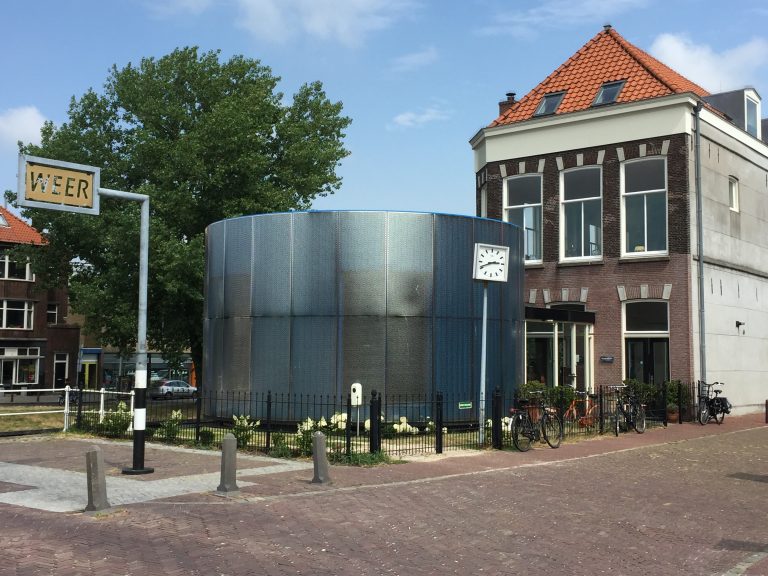
Sign up for our newsletter:
- 071-524 7500
- 06- 1217 2126 (Rob)
Vestwal 2-4 , 2312 NP Leiden

